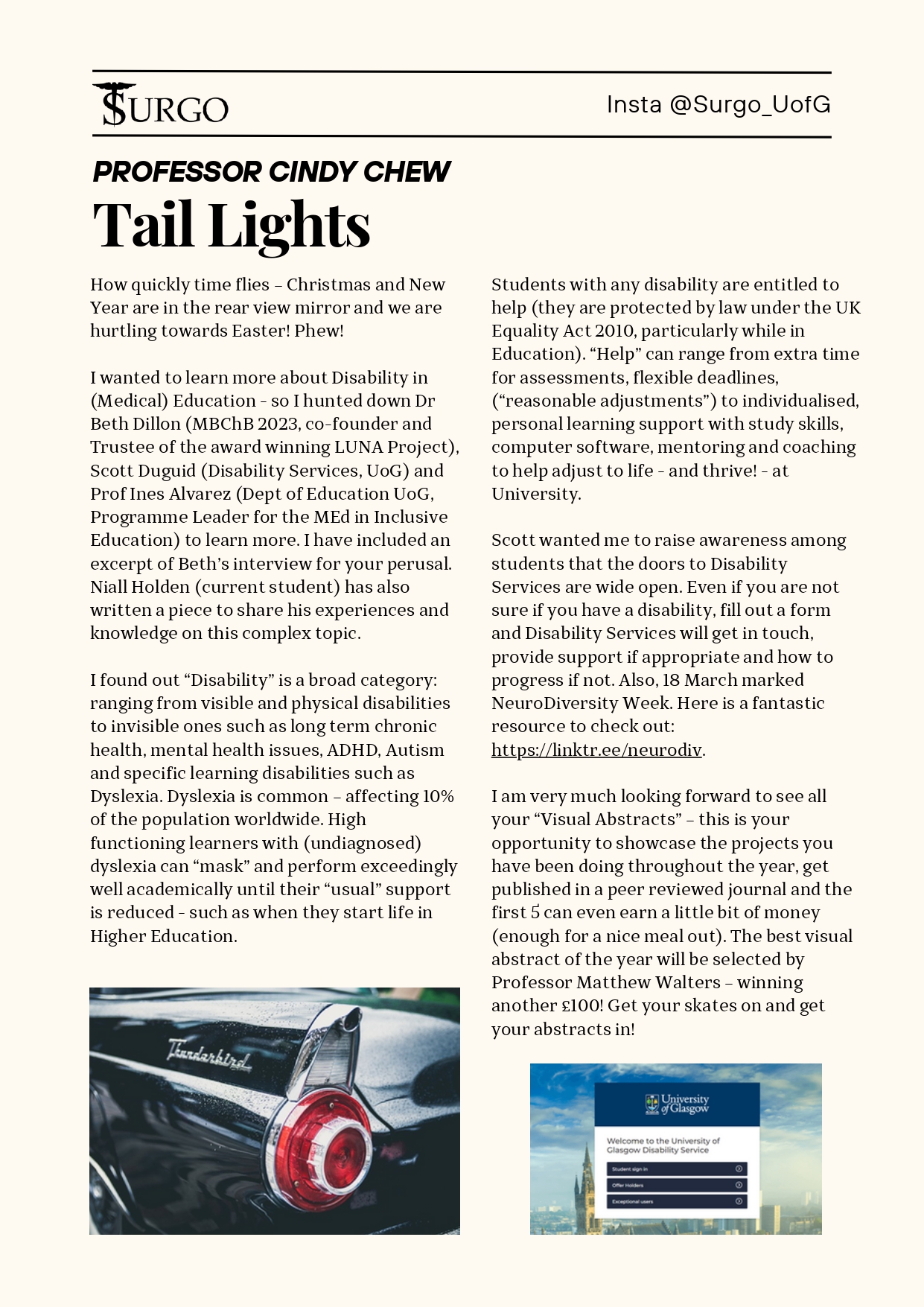Tail Lights
DOI:
https://doi.org/10.36399/Surgo.1.300Abstract
How quickly time flies – Christmas and New
Year are in the rear view mirror and we are
hurtling towards Easter! Phew!
I wanted to learn more about Disability in
(Medical) Education - so I hunted down Dr
Beth Dillon (MBChB 2023, co-founder and
Trustee of the award winning LUNA Project),
Scott Duguid (Disability Services, UoG) and
Prof Ines Alvarez (Dept of Education UoG,
Programme Leader for the MEd in Inclusive
Education) to learn more. I have included an
excerpt of Beth’s interview for your perusal.
Niall Holden (current student) has also
written a piece to share his experiences and
knowledge on this complex topic.
I found out “Disability” is a broad category:
ranging from visible and physical disabilities
to invisible ones such as long term chronic
health, mental health issues, ADHD, Autism
and specific learning disabilities such as
Dyslexia. Dyslexia is common – affecting 10%
of the population worldwide. High
functioning learners with (undiagnosed)
dyslexia can “mask” and perform exceedingly
well academically until their “usual” support
is reduced - such as when they start life in
Higher Education.
Students with any disability are entitled to
help (they are protected by law under the UK
Equality Act 2010, particularly while in
Education). “Help” can range from extra time
for assessments, flexible deadlines,
(“reasonable adjustments”) to individualised,
personal learning support with study skills,
computer software, mentoring and coaching
to help adjust to life - and thrive! - at
University.
Scott wanted me to raise awareness among
students that the doors to Disability
Services are wide open. Even if you are not
sure if you have a disability, fill out a form
and Disability Services will get in touch,
provide support if appropriate and how to
progress if not. Also, 18 March marked
NeuroDiversity Week. Here is a fantastic
resource to check out:
https://linktr.ee/neurodiv.
I am very much looking forward to see all
your “Visual Abstracts” – this is your
opportunity to showcase the projects you
have been doing throughout the year, get
published in a peer reviewed journal and the
first 5 can even earn a little bit of money
(enough for a nice meal out). The best visual
abstract of the year will be selected by
Professor Matthew Walters – winning
another £100! Get your skates on and get
your abstracts in! Finally, a little plug for my fabulously exciting and fun summer elective: Navigating
Uncertainty in Medicine. Fill out this form: https://forms.gle/k5ngU1D9FGyn9XCA8 and
spend 4 weeks with super star doctors and moi! Until the next Taillights! Cindy.


